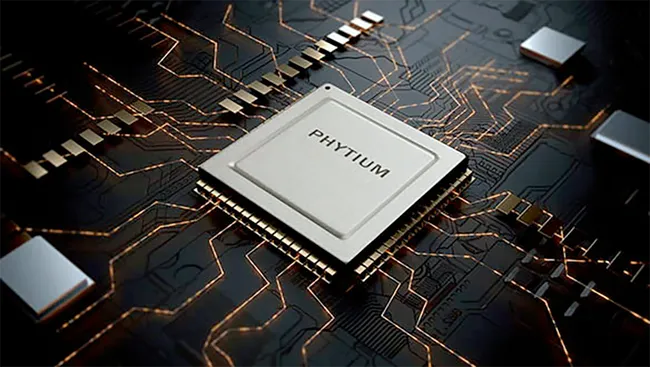
Chinese chipmaker Phytium has achieved a significant milestone by selling over 10 million of its Feiteng series processors, primarily utilized in national projects and essential local industries. This surge in sales comes as the Chinese government restricts the use of American silicon, such as AMD and Intel products, in its operations. Most of these processors are deployed across various applications, from cloud servers to end-user terminals, as reported by Taiwanese media outlet IT Home.
Despite being placed on the U.S. entity list, which limits its ability to import American components, Phytium has continued to innovate. The company launched advanced products like the 64-core Feiteng Tengyun S2500 server CPU and the Phytium FTC870, which competes with Arm’s Neoverse N2 chip. Additionally, it introduced the Feiteng Tengrui D3000 desktop processor aimed at office environments.
Phytium is not alone in this growth; other Chinese chipmakers like Loongson are also gaining traction. Loongson has reportedly shipped 10,000 chips to educational institutions and even placed one of its processors on the Tiangong Space Station, marking a significant achievement in China’s push for homegrown technology. Other companies such as Huawei and Hygon are expanding their market presence as Chinese telecommunications companies move away from Western technology.
While experts suggest that Chinese chips may still lag behind American technologies by about a decade, substantial advancements are being made in developing domestic processors despite U.S. sanctions. U.S. Commerce Secretary Gina Raimondo has indicated that attempts to hinder China’s chipmaking progress are largely futile. The U.S. Senate has also noted that enforcing policies against the Chinese tech sector is insufficient due to a lack of funding at the Department of Commerce.
The rise of Phytium and similar domestic technologies is expected to significantly impact China’s silicon industry. As the government continues to purchase these chips in large quantities, revenue generated could be reinvested into research and development, further enhancing technological capabilities. This shift may also encourage the private sector to adopt local chips that offer competitive processing power at lower costs.
With many government employees using these computers, there is potential for individual consumers in China to seek out these processors, reminiscent of how personal computers were introduced to American consumers in the 1980s and 1990s, allowing companies like Compaq and Dell to expand from office environments into homes across the nation.
Can you afford not to be present in China? Talk to us, we’ll help you succeed in China.